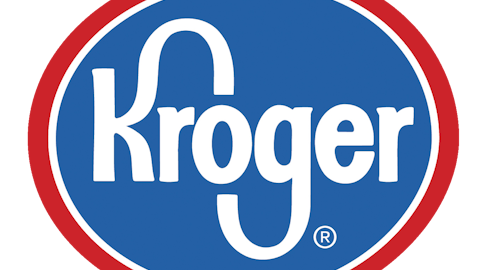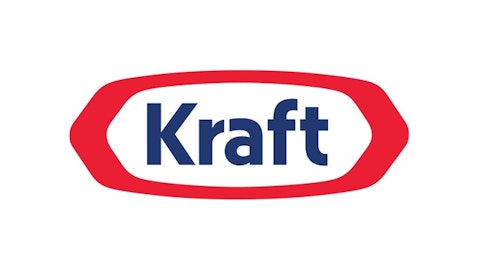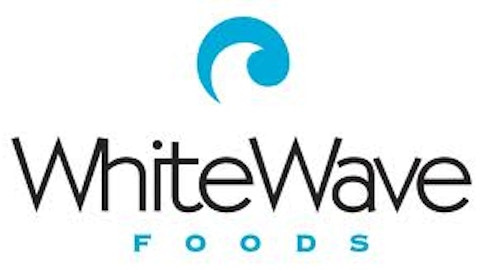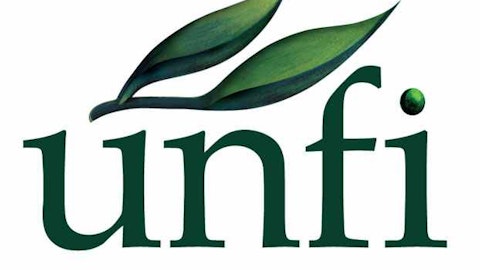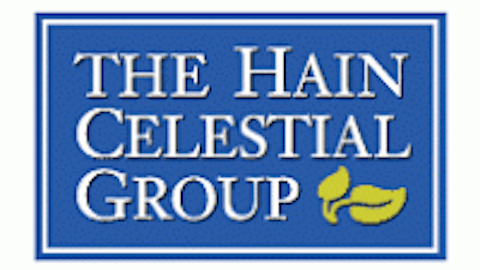United Natural Foods, Inc. (NASDAQ:UNFI)’ corporate profile says it distributes natural and organic food to natural retailers, supermarkets, mass-market chains, and supernatural chains. No, it doesn’t sell granola bars to vampires, not unless they shop at Whole Foods Market, Inc. (NASDAQ:WFM). This is an under-the-radar play on the organic and natural-food industry uptrend with a relationship to grocers and manufacturers like that of Amazon and UPS. United Natural Foods is…logistics for the crunchy-granola set.
Organic and natural foods stocks have an almost limitless addressable market as, excluding Whole Foods Market, Inc. (NASDAQ:WFM), organic and natural make up 5% or less in the average grocer. Yet, according to the Organic Trade Association, 81% of American families buy organic at least sometimes, making the addressable market even larger for United Natural Foods, Inc. (NASDAQ:UNFI) as a distributor.
Its clients include both natural-food manufacturers and retailers. It is also expanding the distribution channel to food service: colleges, schools, institutions, etc. with its acquisition of another distributor, Millbrook, for a total of five acquisitions in the last decade.
The company has a stellar reputation as the first national natural-products company to be certified in organic distribution, back in 2002. Last year it was named one of Fortune‘s most admired companies.
A symbiotic relationship
The company’s rarely mentioned competitive advantage is its menu of value- added services, like marketing programs featuring point-of-purchase displays, informative coupon circulars for clients’ shoppers, and web-based advertising software.
It also offers a variety of services to its retailer clients: store-design assistance, Vantiv-based credit-card services, mobile-technology solutions for ordering, and trend reports on the industry. It knows whereof it speaks on natural-food trends as United Natural Foods, Inc. (NASDAQ:UNFI) distributes over 65,000 SKUs (stock keeping units).
The company’s interests are so closely aligned with its customers it could be deemed a true symbiotic relationship. Whole Foods Market, Inc. (NASDAQ:WFM) has been a customer for a decade; United Natural Foods, Inc. (NASDAQ:UNFI) is its largest third-party supplier, providing almost one-third of its inventory. Whole Foods extended the company’s contract as primary supplier of shelf-stable and frozen products through 2020.

(Source: Organic Trade Association press release)
Distributor vs. retailer vs. manufacturer
The natural-foods business is hot and expected to grow at an 8%-10% CAGR through 2020 as Fellow Fools Mark Lin and BA McKenna have noted. In 2011 the US organic market pushed through the $30 billion sales barrier and has been growing faster than the non-organic segment. The growth in organics parallels identical store-sales growth of 8.4% for 2011 and 2012 for Whole Foods Market, Inc. (NASDAQ:WFM).
One could play it with Whole Foods Market, Inc. (NASDAQ:WFM) or The Hain Celestial Group, Inc. (NASDAQ:HAIN), which offers over 50 organic brands and has been growing through acquisitions like a weed sprayed with natural fertilizer. One could buy Annies Inc (NYSE:BNNY), a natural-food manufacturer, as a small-cap speculative play.
However, as the US’ largest wholesale-organic distributor, United Natural Foods, Inc. (NASDAQ:UNFI) gives you exposure to the success of multiple retailers and manufacturers. This spreads your risk instead of concentrating your investment in a single organic manufacturer or even a 21,000-SKU retailer like Whole Foods.
One advantage of owning United Natural over Whole Foods is the size of the labor force, only 7,000 to Whole Foods’ 53,100 employees. Whole Foods has some of the best benefits and pay out there in retail; it’s why it’s been listed for several years running as one of Forbes best companies to work for. But those labor costs do eat into selling, general, and administrative expenses.
Whole Foods trailing’ net profit margin is higher at 4.2% than United Natural at 1.8%. However, you will pay more for Whole Foods’ higher margin with its trailing P/E of 36.5 and price-to-sales ratio of 1.5 to United Natural’s 30.2 and 0.5, respectively. Whole Foods offers a small yield of 0.8%.
